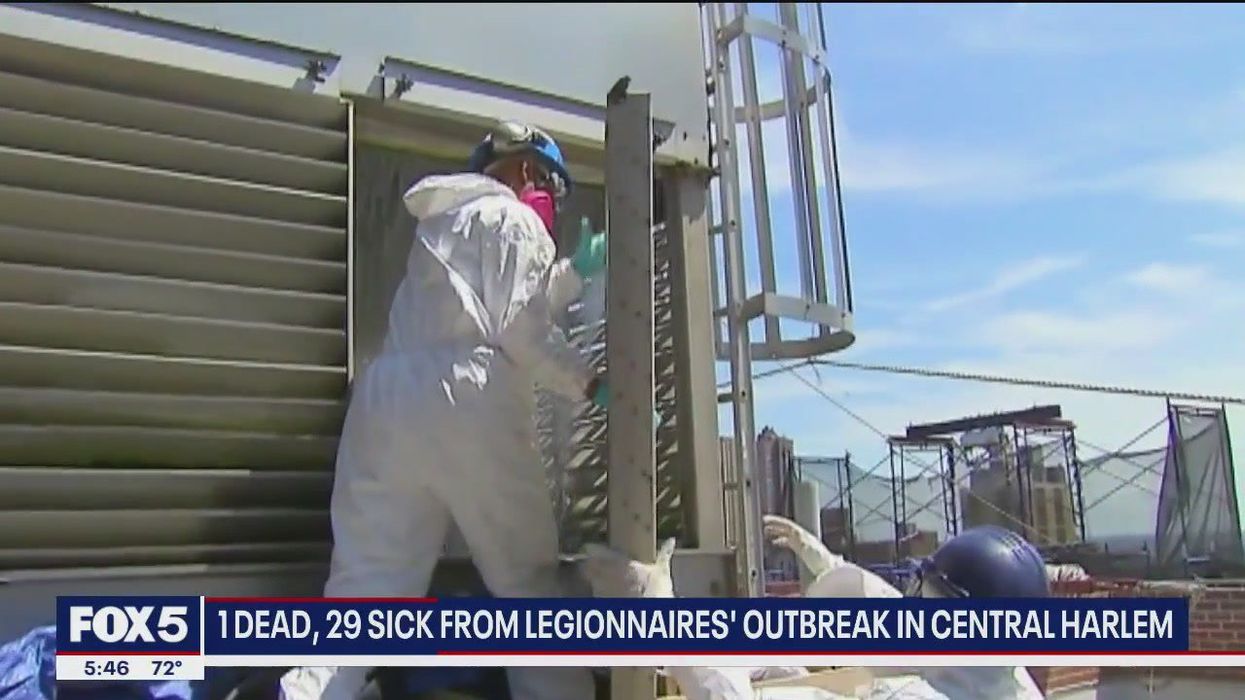A deadly outbreak of Legionnaires' disease in the US has killed three people, and at least 67 people have been diagnosed with cases.
Officials confirmed the latest figures in an update on Tuesday after the first cluster of cases was confirmed by the New York City Health Department last week.
It is reported by ABC News, the cases are clustered in five ZIP codes in the central Harlem area of NYC.
Here is everything you need to know about the illness and the latest outbreak.
What is Legionnaires' disease?
Legionnaires’ disease is a serious type of pneumonia caused by the bacteria Legionella, which grows in warm water, New York officials explained on its website.
Transmission of the disease can occur by inhaling bacteria from water or soil, resulting in flu-like symptoms.
Statistically, around one in 10 people who get ill with Legionnaires will die as a result of complications.
What are the symptoms of Legionnaires' disease?
As mentioned above, people who are infected can display flu-like symptoms such as cough, fever, chills, muscle aches, or difficulty breathing.
The department on Monday urged people living or working in the area who have these symptoms to "contact a health care provider immediately".
It can take anywhere from two to 14 days after exposure for the disease to develop, according to the Centers for Disease Control and Prevention.
Is Legionnaires' disease contagious?
Short answer- no, Legionnaires' disease is not contagious, so you can't contract it from someone.
Who is at higher risk?
In particular, the department added how it's also "especially important" for people at higher risk to seek care if they display symptoms - this includes those ages 50 and older, cigarette smokers, and people with chronic lung disease or compromised immune systems.
Diagnosis and treatment
Pneumonia can be detected with an X-ray, but an additional urine or lab test would be required to pinpoint Legionnaires’ as the cause.
A diagnosis may require hospital treatment in the form of antibiotics or getting oxygen through a face mask/ breathing machine. Once a patient shows signs they are on the mend, they may receive additional antibiotics between one to three weeks to aid recovery.
Unfortunately, there is no vaccine for Legionnaires' disease at the moment.
What has caused this recent outbreak?
Some of the ways a Legionnaires’ outbreak can be caused include home plumbing, hot tubs and whirlpools, cooling towers in air conditioning systems, hot water tanks and heaters, decorative fountains, swimming pools, birthing pools, and drinking water.
The cause of the latest outbreak is currently under investigation by the New York City Health Department, and it was able to give an update on Tuesday.
"This is not an issue with any building's plumbing system. Residents in these ZIP codes can continue to drink water, bathe, shower, cook, and use your air conditioner," it said.
Previously, it explained "the remediation required by the Department has been completed for the 11 cooling towers with initial positive screening results showing the presence of Legionella pneumophila, a type of bacteria that causes Legionnaires’ disease."
How can I prevent this?
Ensure you're cleaning water-using devices and flush faucets, says the Centers for Disease Control and Prevention.
A water management program used by building owners and managers should help to reduce the risk of Legionnaires' growing.
Meanwhile, in our cars, we should "only use genuine windshield cleaner fluid and follow the vehicle manufacturer recommendations" as Legionnaires' can grow in the windshield wiper fluid tank of a vehicle, especially when it's full.
Elsewhere, DNA study suggests one thing to blame for ‘new era' of human disease, and unexpected discovery in ancient tomb could 'help fight cancer'.
How to join the indy100's free WhatsApp channel
Sign up to our free indy100 weekly newsletter
Have your say in our news democracy. Click the upvote icon at the top of the page to help raise this article through the indy100 rankings.














